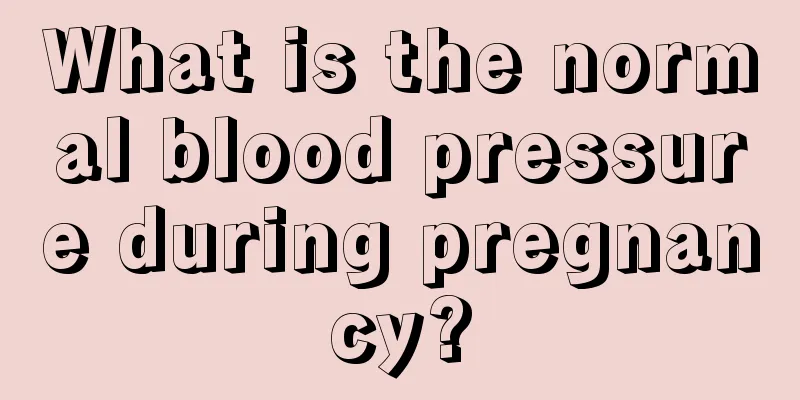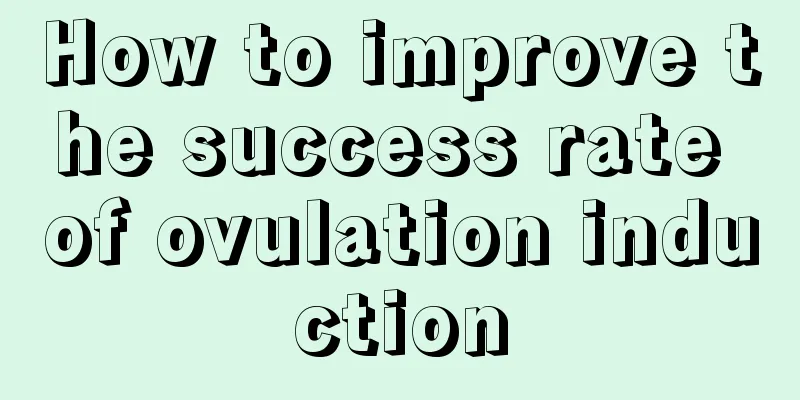Beware of brain "sub-health" if you forget things easily and lose things easily

|
Author: Han Zhao, Chief Physician, Second Affiliated Hospital of Wenzhou Medical University Reviewer: Fan Dongsheng, Chief Physician, Peking University Third Hospital Sub-health refers to a state in which the human body is between health and disease. Although people in a sub-healthy state do not have a clear diagnosis of disease, their mental vitality and adaptability will be significantly reduced, and they may be accompanied by a series of physical and mental symptoms. The brain also has a "sub-healthy" state, which is medically called "temporary memory impairment", commonly known as "amnesia". 1. What are the symptoms of brain “sub-health”? To put it simply, "sub-health" of the brain means that the brain's thinking ability or retrieval ability is temporarily impaired, which causes the patient to be unable to accurately reflect and retrieve new nouns or nouns that have been remembered, and then manifests as memory loss and easy forgetfulness. This disorder can manifest as partial loss or complete forgetfulness, and its occurrence is related to many factors. It can manifest as rummaging through a bag to get something, but forgetting what to take while searching; calling a friend to talk about something, but forgetting what to say as soon as the call is connected, and forgetting things as soon as the head turns around. Temporary memory impairment often delays the patient's time arrangement and even affects work efficiency. Figure 1 Copyright image, no permission to reprint 2. The impact of brain "sub-health" on the human body "Sub-health" of the brain is a phenomenon of forgetfulness, and it is not yet a sign of premature aging, but it should be taken seriously. If work or life problems are not improved for a long time, patients with temporary memory impairment are likely to enter the ranks of Alzheimer's disease early. Some office workers suffer from long-term anxiety, tension, and high work pressure, which will affect the secretion and metabolism of adrenaline and norepinephrine, thereby affecting emotions and damaging the hippocampus of the brain. This group of people is prone to Alzheimer's disease. Figure 2 Copyright image, no permission to reprint 3. How to deal with brain "sub-health" 1) Do more exercise. Exercise can regulate and improve the brain's excitation and inhibition processes, allowing the brain to function fully and delay brain aging. 2) Adjust your mindset, learn to let go when you’re under too much pressure, be more open-minded, and look at problems from outside your “circle”. 3) Change your unhealthy lifestyle, make sure your work, study, activities, entertainment and diet are on a regular basis, ensure adequate sleep, and avoid overusing your brain. 4) Do not abuse drugs, smoke, or drink excessively. 5) Practice chewing food. When you use your chewing muscles, stimulation will be transmitted to the brainstem, cerebellum and cerebral cortex, thereby improving brain activity. Thorough chewing also helps secrete cholecystokinin, which can enter the brain through blood circulation and improve memory and learning ability. 6) Supplement B vitamins. Vitamins and minerals are important for the normal functioning of the human brain. Pay attention to the intake of B vitamins in your daily diet. Premenopausal women should take an appropriate amount of iron and zinc to help improve memory. Figure 3 Copyright image, no permission to reprint Figure 4 Copyright image, no permission to reprint 4. Several tips to prevent brain "sub-health" 1) Pick out unfamiliar words from the dictionary and use them when talking to others. 2) Take a yoga, Pilates, or meditation class. 3) Chat with people you don’t know. 4) Take a different route to work. 5) Do more brain teasers. 6) Do a crossword puzzle. 7) Go for a brisk walk outdoors. Figure 5 Copyright image, no permission to reprint Figure 6 Copyrighted images are not authorized for reproduction |
<<: Peptic ulcer: a "little trouble" in the body with a big hidden danger
Recommend
How to make your period come a few days earlier
Women nowadays are under great pressure from stud...
The impact of fetal arrest on the next pregnancy
If a woman experiences fetal arrest during pregna...
What is candidiasis?
Since ancient times, many diseases have plagued p...
Can a girl have sex with you?
Nowadays, many people know that women cannot have...
Can massage stimulate lactation?
Because many mothers actually have less milk afte...
What should women do if they have menstrual stomach pain?
Many girls find that their stomachs hurt a lot du...
Postpartum feeling of vaginal swelling
Pregnancy and childbirth are necessary processes ...
Pros and cons of Lip Knife surgery
Surgical treatment of cervical erosion is a commo...
What is vaginitis and how to treat it?
Because a woman's vagina is in a relatively c...
Correct breast massage method
In fact, many women are now troubled by breast pr...
Female chest veins are obvious
Female friends will be very worried when they see...
Are you aware of the risks of exposure to nail lamps if you love doing manicures?
The Spring Festival is here, and many beauty-lovi...
How to clean the episiotomy wound during normal delivery? This is the right way to care for it
I believe that many women who have given birth wi...
What kind of underwear should I wear if I have breast hyperplasia?
The problem of breast hyperplasia has always trou...
Why do women's underwear turn yellow?
Female friends must pay attention to their privat...









